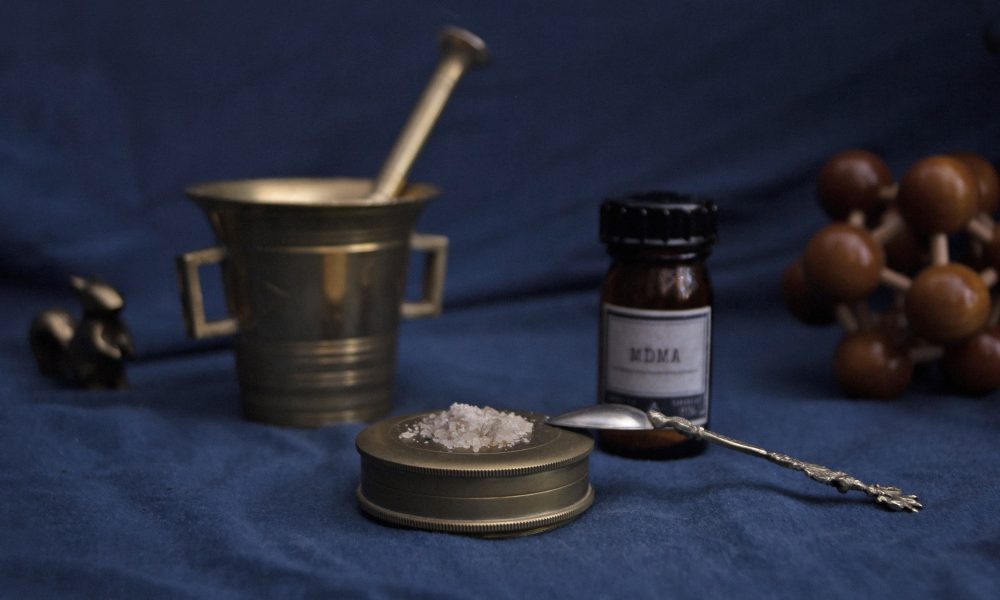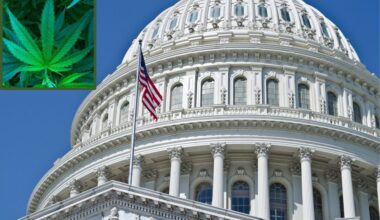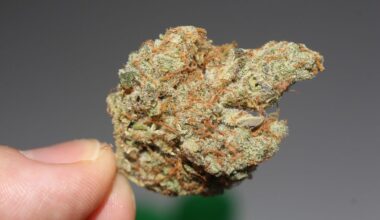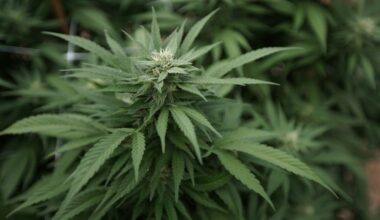A Colorado Senate committee on Wednesday unanimously approved a House-passed bill to align state statute to legalize MDMA prescriptions if and when the federal government ultimately permits such use.
The House cleared the bill earlier this month, and now the Senate Health & Human Services Committee approved it in a 5-0 vote, sending it to the Committee of the Whole.
The bipartisan and bicameral legislation is being sponsored by Reps. Patrick Neville (R) and David Ortiz (D), along with Sens. John Cooke (R) and Joann Ginal (D).
“MDMA-assisted therapy has already shown incredible results in the stage three clinical trials for individuals suffering from severe PTSD,” Ginal told committee members. “I ask for your support on this bill.”
In a setback for advocates, House lawmakers separately rejected a different bill this month to create a psychedelics review panel to study substances like psilocybin and DMT and issue recommendations on possible policy changes.
The MDMA legislation, meanwhile, would legalize “prescribing, dispensing, transporting, possessing, and using” MDMA if the U.S. Food and Drug Administration (FDA) approves the substance as a prescription drug.
The bill states that that MDMA is “highly effective if paired with talk therapy and counseling” and notes that “it is widely expected that the federal Food and Drug Administration will approve MDMA-assisted therapy for prescription use for PTSD as soon as 2023.”
—
Marijuana Moment is already tracking more than 1,000 cannabis, psychedelics and drug policy bills in state legislatures and Congress this year. Patreon supporters pledging at least $25/month get access to our interactive maps, charts and hearing calendar so they don’t miss any developments.![]()
Learn more about our marijuana bill tracker and become a supporter on Patreon to get access.
—
The bill is “not for recreational [MDMA] use, and it’s very controlled environment once they get prescribed it,” Cooke said on Wednesday. “It’s to help people like our military, our law enforcement, our first responders who are suffering from PTSD—and it does have a great success rate so far.”
Activists in Colorado might feel encouraged to see the modest reform measure advancing, but not everyone is waiting around for the legislature to act. There are two campaigns seeking to place psilocybin legalization on the state’s November ballot.
The psychedelics reform movement has spread rapidly throughout state legislatures this session.
For example, Maryland lawmakers recently sent a bill to the governor that would create a state fund to provide “cost-free” access to psychedelics like psilocybin, MDMA and ketamine for military veterans suffering from post-traumatic stress disorder (PTSD) and traumatic brain injury.
The Maine Senate approved a bill this month to to create a medical psilocybin program in the state, but the House of Representatives refused to go along.
Also this month, Georgia lawmakers advanced a bipartisan resolution that calls for the formation of a House study committee to investigate the therapeutic potential of psychedelics like psilocybin and make recommendations for reforms.
The governor of Utah last month signed a bill to create a task force to study and make recommendations on the therapeutic potential of psychedelic drugs and possible regulations for their lawful use.
A Missouri House committee also held a hearing last month on a GOP-led bill to legalize a wide range of psychedelics for therapeutic use at designated care facilities while further decriminalizing low-level possession in general.
A Connecticut legislative committee approved a bill last month that would set the state up to provide certain patients with access to psychedelic-assisted treatment with substances like MDMA and psilocybin. Connecticut Gov. Ned Lamont (D) signed a separate bill last year that includes language requiring the state to carry out a study into the therapeutic potential of psilocybin mushrooms. A workgroup has since been meeting to investigate the issue.
The Washington State legislature recently sent a budget bill to the governor’s desk that includes a proposal to direct $200,000 in funding to support a new workgroup to study the possibility of legalizing psilocybin services in the state, including the idea of using current marijuana regulatory systems to track psychedelic mushrooms.
Last month, the Hawaii Senate approved a bill to set up a state working group to study the therapeutic benefits of psilocybin mushrooms and develop a “long-term” plan to ensure that the psychedelic is accessible for medical use for adults 21 and older.
Also last month, the Oklahoma House of Representatives passed a bill to decriminalize low-level possession of psilocybin and promote research into the therapeutic potential of the psychedelic.
Rhode Island lawmakers introduced a pair of drug decriminalization bills last month—including one focused on psilocybin and buprenorphine that would authorize doctors to prescribe the psychedelic mushroom.
An Oregon Senate committee also recently advanced a bill to ensure that equity is built into the state’s historic therapeutic psilocybin program that’s actively being implemented following voter approval in 2020.
A bill to decriminalize a wide array of psychedelics in Virginia was taken up by a House of Delegates panel in January, only to be pushed off until 2023. A separate Senate proposal to decriminalize psilocybin alone was later defeated in a key committee.
California Sen. Scott Wiener (D) told Marijuana Moment in a recent interview that his bill to legalize psychedelics possession stands a 50/50 chance of reaching the governor’s desk this year. It already cleared the full Senate and two Assembly committees during the first half of the two-year session.
Washington State lawmakers also introduced legislation in January that would legalize what the bill calls “supported psilocybin experiences” by adults 21 and older.
Meanwhile, a Pennsylvania bill meant to promote research into the therapeutic potential of psilocybin mushrooms for certain mental health conditions may be in jeopardy, with the sponsor saying that the chair of a key House committee is expressing reservations even after the legislation was amended in an effort to build support.
New Hampshire lawmakers filed measures to decriminalize psilocybin and all drugs.
Legislation was also enacted by the Texas legislature last year requiring the state to study the medical risks and benefits of psilocybin, MDMA and ketamine for military veterans in partnership with Baylor College of Medicine and a military-focused medical center.
At the congressional level, bipartisan lawmakers sent a letter to the Drug Enforcement Administration (DEA) in January, urging that the agency allow terminally ill patients to use psilocybin as an investigational treatment without the fear of federal prosecution.
Photo courtesy of Pretty Drugthings on Unsplash.
Medical Disclaimer:
The information provided in these blog posts is intended for general informational and educational purposes only. It is not a substitute for professional medical advice, diagnosis, or treatment. Always seek the advice of your physician or other qualified healthcare provider with any questions you may have regarding a medical condition. The use of any information provided in these blog posts is solely at your own risk. The authors and the website do not recommend or endorse any specific products, treatments, or procedures mentioned. Reliance on any information in these blog posts is solely at your own discretion.






